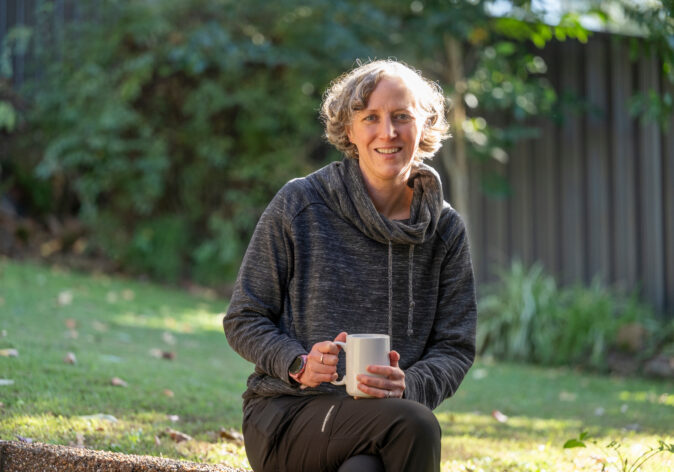The Human Genome Project is an incredible medical discovery, essentially giving us the ability, for the first time, to read nature’s complete genetic blueprint for building a human being. It has revolutionised every area of human disease including cancer.
Professor Geoff Lindeman of The Walter and Eliza Hall Institute (‘WEHI’) and the Study Chair of Breast Cancer Trials BRCA-P clinical trial says, “All cancers are ultimately genetic. They’re made up of mutations that promote the growth of tumour cells. The DNA essentially goes awry.”
We now have a suite of genes that have been identified as having a link to cancer including the BRCA1 and BRCA2 genes. The identification of the BRCA genes was the culmination of a furious international hunt, call it a ‘medical space race,’ with the BRCA1 gene being discovered in 1994 and the BRCA2 gene found shortly afterwards in 1995.
The BRCA genes were identified by looking for genetic mistakes (‘mutations’) in DNA from families that had large clusters of breast and ovarian cancer to find a faulty gene. With further research it has become clear that mutations in the BRCA2 gene can also moderately increase the risk of prostate, pancreatic and even the skin cancer melanoma.
Other genes that have been linked to familial breast (and other) cancer include PALB2, TP53, PTEN, CDH1 and STK11, although the frequency of mutations in the population for some of these genes is very low. While hereditary TP53 mutations are very rare, the TP53 gene itself is often mutated in breast and other cancers. Prof Lindeman said that some of the lessons learnt in studying familial cancers have proven helpful for understanding cancer more broadly.
Heritable mutations in other genes such as CHEK2 and ATM may also elevate breast cancer risk, but to a lesser extent than the BRCA1 genes. Knowing about mutations in these ‘moderate risk’ genes can be useful, as it helps doctors to tailor advice on breast cancer screening.
The BRCA and other genes described above are known as tumour suppressor genes. This is because they play important roles in preventing cancer by fixing mistakes in DNA that arise during normal cell division that could otherwise lead to cancer. If a BRCA mutation is present, they are less effective at suppressing cancer. This is why cancers may occur more frequently, and often at an earlier age, compared to ‘sporadic’ forms of cancer.
There has been considerable progress in the BRCA field since the BRCA1 and BRCA2 genes were discovered just over 25 years ago. There is now a prevention trial ‘BRCA-P’ underway for BRCA1 mutation carriers. In the BRCA-P trial, Professor Geoff Lindeman and his team are investigating whether a drug called denosumab could prove a safe and effective way of preventing breast cancer in women with a faulty BRCA1 gene.
The BRCA-P study has arisen from years of work to identify the culprit cell in breast tissue that leads to breast cancer in BRCA1 mutation carriers. It turns out that the precancerous cell is activated by a signalling pathway called ‘RANK’. The drug denosumab, which is already used in the clinic to treat bone thinning (osteoporosis), works by switching off RANK signalling. The research team hopes that denosumab will also be effective at also switching off the precancerous cells in BRCA1 mutation carriers, preventing cancers from developing in the first place. “We are hopeful that denosumab, whose safety profile is well understood, can be repurposed as a prevention drug for women at the highest risk of developing breast cancer.”
Some women with a faulty BRCA1 gene undergo preventive mastectomy, which has been shown to be highly effective at preventing breast cancer. “Most women, however, don’t elect to undergo preventive mastectomy. If the study is successful, denosumab could represent a way for buying women time to delay the decision for mastectomy, or even remove the need for some women.”
Taking a pre-emptive strike at cancer is where Professor Lindeman sees the future of cancer research for women like BRCA1 mutation carriers, who have a strong hereditary predisposition. Professor Lindeman explains that “by identifying the cancer-causing genes and understanding the earliest molecular and cellular events that occur in breast tissue, it should be possible to identify ways of correcting the ‘faulty wiring’, even before cancers arise.”
“The transfer of research in this area has been quite remarkable. In the late 90’s, testing was cumbersome and slow, and focussed on families where there were dramatic clusters of breast and ovarian cancer. Nowadays people affected by cancer can undergo fairly rapid testing for a panel of genes to identify a heritable predisposition. This knowledge is being applied to guide their own management, prevent future cancers, and of course to test family members to see if they are at risk for developing breast or ovarian cancer, so that appropriate surveillance and management plans can be put in place if a mutation is found.”
The BRCA-P trial is the first international trial that hopes to proactively prevent breast cancer in BRCA1 mutation carriers. “If we can delay or prevent cancer from happening in the first place that would be a fantastic outcome. Women who take part in the study could benefit and will be contributing to a study that may benefit the next generation women” concluded Lindeman.
For more information about the BRCA-P trial go to: www.breastolution.com.au



